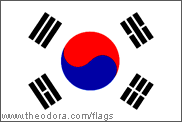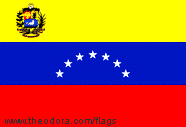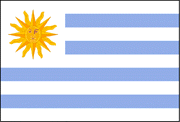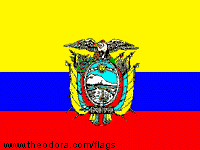

|

I. Types of Collaborations
A. Binational Centers/UMBC EFL Teacher
Training Collaborations
B. Short-term Training
C. Program Design and DevelopmentII. SMU-TESOL Certificate Program
III. Centro Venezolano Americano
IV. Alianza Cultural Uruguay - Estados Unidos
V. Centro Ecuatoriano Norteamericano de Guayaquil
* * * * * * * * * * * * * *
Types of Collaborations
The ESOL/Bilingual ISD M.A. Program at UMBC collaborates with a number of international ESOL teacher training programs. The following describes three different types of collaborations in which we currently participate.
Binational Centers/UMBC EFL Teacher Training Collaborations
The number of students studying EFL in Latin America is large and growing. At present, the demand for EFL teachers is high, but the number of trained teachers is limited. In the majority of cases, EFL teachers employed by public and private primary and secondary schools, private language institutes, private companies, and government agencies come from a variety of non-EFL backgrounds, e.g., engineers, doctors, lawyers, and accountants, who are hired because they speak some English. The majority have no prior EFL teacher training and once employed receive a minimum of inservice training.
To provide needed training, the British Council, and some universities (local, U.S and British) offer preservice EFL teacher training programs. These include 4-year undergraduate degree programs or 2-year M.A. programs. Often these programs are theoretical in nature. Moreover, tuition costs are prohibitive for most students. As a result, only a small percentage of EFL teachers are able to enter and complete these programs.
Binational Centers throughout Latin America have also been offering EFL preservice and inservice teacher training programs for many years. These programs differ in focus, content and methodology according to the program and the needs of the particular area. Over the years, these centers have trained many good EFL teachers who have greatly contributed to the profession. The binational centers continually strive to improve their programs. However, because they are not connected, approved or associated with organizations such as RSA/Cambridge or local or foreign universities, they may be viewed as not as "good" or "prestigious" as university degree programs. This has put them at a disadvantage in recruiting prospective students and in some cases, having their teacher training programs accepted or "certified" by the national government.
In order to support and assist binational center EFL teacher training programs, the ESOL/Bilingual M.A. program at the University of Maryland at Baltimore County (UMBC) has entered into collaborative agreements with several binational centers. These collaborations involve faculty exchanges, student internships, e-mail ocmmunication, and other technical support. The program also serves in an advisory capacity to these programs, providing assistance in developing courses, teacher training, and program evaluation. And finally, UMBC serves as an outside evaluator of the program, attesting to its quality.
Programs who have entered into the collaboration can use the UMBC ESOL/Bilingual M.A. program's name in recruitment brochures and descriptive documents, and on diplomas and certificates. It is understood that the credits earned in the program's courses are not UMBC credits, nor are they transferable into the UMBC ESOL/Bilingual M.A. program. However, the courses, in most cases, follow the general guidelines of the UMBC ESOL/Bilingual M.A. program's courses and meet the high standards of university courses.
An ESOL/Bilingual M.A. program faculty member visits the program once a year. The purpose of this site-visit is to meet with faculty, review documents, observe classes, and work with faculty and staff. In some cases, the visiting UMBC faculty member is asked to conduct workshops or do a program evaluation.
Where possible, UMBC and the program develop an internship agreement where students in the UMBC program spend one semester or a summer teaching in the binational center's EFL regular English program. In cases where the binational center has a difficult time in recruiting qualified faculty for the teacher training program, students from the UMBC program who meet the faculty criteria (course work and previous ESOL teaching experience) spend a semester or summer teaching in the program's teacher training program.
The ESOL/Bilingual M.A. program contracts to do special teacher training both at UMBC and on-site at schools, universities, and centers around the world. For example, the program conducted a three summer teacher training project for 80 EFL preparatory teachers for a state university in Mexico. The training was proficiency oriented and the goals were to improve oral proficiency and classroom teaching techniques for teaching using the communicative approach.
Program Design and Development
The UMBC program also works with college and university programs who want to begin development of ESOL teacher training certificate or degree programs. For example, the UMBC program collaborated with Sookmyung Women's University (SMU) in Seoul, Korea to develop a graduate level TESOL certificate program - the only one of its kind in Korea and one which was critically needed given the shortage of English teachers to meet the new national requirements for English beginning in the third grade. The SMU - TESOL program was designed to meet the needs of Korean teachers of English who teach in public schools and other educational institutions in Korea. The program was modeled on UMBC's ESOL/Bilingual M.A. program and follows TESOL International's "Core Standards for Language and Professional Preparation Programs." Students who successfully finish the SMU - TESOL program many times apply and are admitted to ESOL M.A. programs in the United States. SMU - TESOL students who are admitted to the ESOL/Bilingual program at UMBC are allowed to transfer four SMU - TESOL courses (12 graduate credits) into the program.
* * * * * * * * * * * * *

SMU-TESOL CertificateProgram:
Overview and Philosophy
The SMU
- TESOL program is designed to meet the needs of Korean teachers of English who teach in public schools and other educational institutions in Korea.
Students in the program take a total of 4 courses (16 credit hours): two ESOL
methodology courses investigate the latest techniques for teaching and
evaluating speaking, listening, reading and writing skills; one course in
language acquisition which looks at L2 language learning theory and one in
cross-culture studies. Students also participate in a practicum where they put
into practice the skills they have learned in the program. The program was
developed in cooperation with the ESOL/Bilingual M.A. Program, University of
Maryland Baltimore County (UMBC). The program is modeled on established TESOL
certificate and M.A. TESOL teacher preparation programs in the United States and
follows TESOL International's "Core Standards for Language and Professional
Preparation Programs".
Faculty
for the program are chosen on the basis of their previous academic experience in
ESL and EFL and past and present ESOL teaching and teacher-training experience.
They also receive the UMBC ESOL/Bilingual program's training of trainers
orientation for those who are preparing to do teacher-training abroad.
Professors from the ESOL/Bilingual M.A. program at UMBC work in conjunction with
the coordinator and professors in the SMU Korea-TESOL department in monitoring
and evaluating the program. Professors from UMBC and other U.S. universities
also teach and/or present special workshops in the program.
The
program uses a content-based proficiency
oriented approach which is designed to help the participants improve their
fluency, proficiency and confidence in English and give them a
theoretical and practical base in English teaching methodology and techniques,
testing, cross-culture, and second language acquisition. Participants are
required to develop supplemental materials based on the curriculum and texts
they are currently using in their present ESOL teaching situations.
The
delivery of instruction (CBI - proficiency oriented) follows an academic format
working from theory to application and practice. The range of delivery is varied
and includes lectures, demonstrations, micro-teaching, group work, class
discussions, special projects, pair-work, papers and reports. The SMU Korea-TESOL
program is a "hands-on" program in that it works from theory to
practice. The participants leave the program not only with a solid grounding in
teaching and language learning theory but also with lesson plans, teaching
activities, regalia, and suggested teaching materials for use in their ESOL
classrooms.
* * * * * * * * * * * * *

Centro Venezolano Americano is a binational non-profit association founded in 1941 by three Venezuelan women to promote the cultural exchange of information between the peoples of Venezuela and the United States of America. CVA was born out of Franklin Roosevelt's Good Neighbor Policy. To contribute to a better understanding between the two nations, CVA offers English and Spanish courses, a Certificate in TEFL program, an International Internship program (Pasante Internacional), conferences, art exhibits, concerts, films and lectures.
The Certificate in TEFL program is offered in collaboration with the University of Maryland at Baltimore County. The program is designed to provide participants the opportunity to acquire the basic theoretical fundamentals upon which the classroom practice (core of the program) is based. Thus, the instructors' performance in class will improve through orientation in the use of teaching methodologies, techniques and materials. The program is designed for teachers with at least six months of experience or corporate trainers who wish to cross train in TEFL. The program consists of eight courses (48 hours each). These classes include On Teaching English, Teaching Oral Skills, Grammar for TEFL, Teaching Reading and Writing and Vocabulary Development, Classroom Management and Learning/Teaching Techniques, Testing, Teaching Culture, and Materials Evaluation.
The International Internship, or Pasante Internacional, program is for American or Canadian graduates whose purposes are: 1) to get acquainted with Venezuela, its people, language and culture, 2) to teach English and obtain valuable teaching experience abroad in a non-English speaking environment, and 3) to share one's knowledge of North American culture. The internship is for a period of no less than 6 months to teach English as a foreign language, study Spanish and participate in the cultural events sponsored by the Center. Contracts can be renewed fro up to a two year period.
* * * * * * * * * * * * *

Alianza Cultural Uruguay - Estados Unidos
The Alianza, with the support of the University of Maryland at Baltimore County offers a Diploma of Teacher of English as a Foreign Language. The general goal of the TEFL Program is the instruction of teachers who will cater to the learning needs of children, teenagers, and adults in contexts such as Binational Centers, English teaching institutes, and schools. The program highly values student-teachers' professional and personal growth. It respects individual processes and believes that interaction with texts and contexts fosters construction of meaning and learning. Classes are taught within an interactive, task-based, student-centered approach with an emphasis on cooperation. The program takes 5 trimesters (1 1/2 years) to complete and includes the following courses: Second Language Acquisition, Methods I and II, Pronunciation, Teaching Listening and Reading, Teaching Grammar and Vocabulary, Teaching Speaking, Methods for Teaching EFL, Teaching Writing, Assessment, Curriculum Design and Materials Development, American Studies, and Research.
* * * * * * * * * * * * *

Centro Ecuatoriano Norteamericano de
Guayaquil
The Centro Ecuatoriano Norteamericano de Guayaquil, also known as The Ecuador- United States Cultural Center offers a Joint Certificate Program in English Teaching in collaboration with the University of Maryland at Baltimore County and the United States Information Service. The program consists of 208 hours of instruction and 36 supervised practicum hours. Courses include Methods for Teaching ESL, Methods for Teaching Reading and Writing in English, Second Language Acquisition, Testing, Classroom Management, English Grammar, Pronunciation, and Practicum.
Flags courtesy of ITA's Flags
of All Countries used with permission.